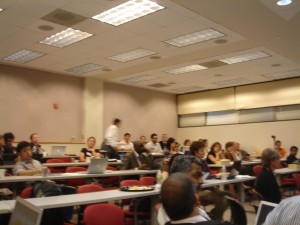Taobao at the Crossroad of China’s Regulations on Internet Retails
Taobao Mall is the country’s leading online retail platform, accounted for nearly a third of China’s online retail B2C market share in the second quarter, followed by 360buy.com’s 12.4 percent and amazon.cn’s 2.3 percent.
From early October 2011, a large number of small sellers on Tabao’s system went on a riot when the company earlier announced an up to 10-fold increase in membership fees, along with a maximum 15-fold increase in cash deposits, from next year. The proposed fees ignited a storm of protest online and the owners of some small businesses disrupted the site’s operation. The company believed that some of those responsible for the disruption had been fined by Taobao for selling fake products, Ma said.
Partially pressed by Ministry of Commerce, Taobao announced on October 18 revised fees and a 1.8 billion yuan ($282.2 million) investment plan to aid the development of small- and medium-sized enterprises, in a move seen as a conciliatory gesture following a bitter online fee dispute. But some small vendors insisted that the “fight for their rights” will continue.
The revised measures include a 9-month grace period for regular sellers, who have maintained good ratings, before new fees kick in. But those who register after the revised policy will have to pay the new fees from Jan 1, 2011.
The cash deposit paid by vendors will also be cut in half, and Alibaba will pay 1 billion yuan to make up the shortfall and invest that money to help small businesses. Alibaba said it would pay another 500 million yuan as a guarantee fund to help small online traders obtain loans from banks, and it will spend an extra 300 milllion yuan on technical support and promotion. However, stores at the bottom 10 percent in terms of customer satisfaction rating will not be eligible.
Alibaba’s online retail unit split into three sections in June. Taobao Mall enables businesses to sell to customers and Taobao Marketplace allows customers to trade with each other. The third section is a shopping-related search engine, eTao. Taobao Mall, the business-to-customer (B2C) section, connects consumers in China with retailers ranging from small operators to retail giants like Gap Inc of the US and the Uniqlo brand of Japan’s Fast Retailing Co. Alibaba said that a total of 50,000 traders are registered with Taobao Mall, and some 5 percent of vendors will be affected by the new policies.
The incident involves a number of legal issues and occurred at a sensitive moment when the draft of the Regulations on Internet Retails are being reviewed by the State Council and a variety of Ministerial Agencies. The new Regulations will set out an administrative license system for any Third-Party Transactional Platform services, such as Taobao. On the other hand, the market dominance by Taobao in Internet Retail Market raised the people’s concerns on competition and consumer protection. With respect to protection of SMEs in Internet Retails, there may be an issue of Internet governance subject to multi-stakeholder and transparency.
Permalink Comments off
